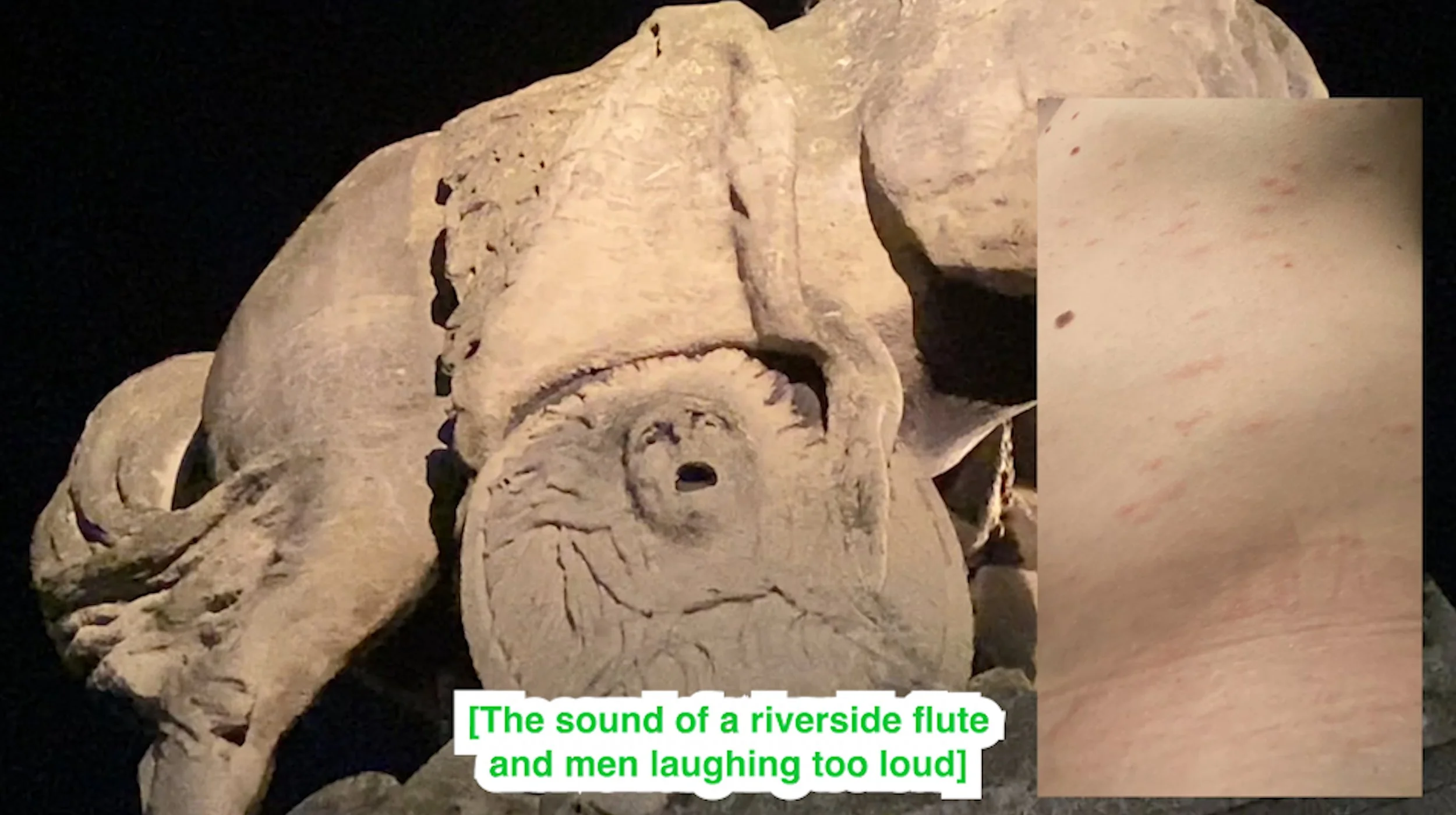Episode 1: Daniel Sharp
Daniel Sharp, Prednisone (still test, film, approx. 17 minutes), 2023
For Making Time’s inaugural feature, Tessa talks with multi-disciplinary artist, musician, and organizer, Daniel Sharp, from his home in Detroit, MI. We discuss his most recent video project, Prednisone, the physical consequences of burnout, and the cyclical process of unlearning coping mechanisms from childhood.
thoughts on prednisone (2023):
interview excerpt
Tessa Beck: I like that you included a quote at the beginning of the piece that reads, “Life really is all about language and the land,” while still keeping this sense of ambiguity around the land and location that you’re depicting. The mining of your Irish ancestry also pushes the piece toward this historical, cognitive or interior mining of place, versus something physical.
Daniel Sharp: I think that’s definitely how the film lands for me at the end. It starts with this search for me to make work about my history, and feeling like I need to do a better job of knowing what past generations could tell me because that gives a lot of people strength. So like, okay, let’s go digging.
Let's make my great grandma's Swedish pie. But it's a little like, you know… meh. It’s a recipe and that's beautiful, and it gets passed down – but to actually go visit and find meaning in these places is very different. And then to be let down by some of them is even worse.
DS: And you know, I think as I say in the film, I'll keep searching, and I'd love to be proven wrong. It’s this funny thing to try and find meaning, or purpose, or direction in land that you know you’re from – and then coming up empty handed is a really weird experience.
TMB: Right, and I’m curious about where you look next when the thing that was supposed to give you a sense of guidance or hope actually ends up providing the opposite. I’ve had to spend so much energy lately building these internal structures in order to feel rooted in my life at all.
What’s emerged that interests me is the internally constructed place that you carry and develop throughout your life can be just as compelling, if not more, than the physical location or personal history you occupy.
DS: Mm-hmm, totally. It's the difference, or maybe a kind of parallel experience of when you and I go up to White Earth and we hang out with Bruce and Company, and they tell these stories of like: these red runner beans have come from us – they've come from this Ojibwe and Anishinaabe land for generations. And then I'm like, I should think about that too, and it's just like… clotted cream.
TMB: Potatoes.
DS: Turns out plot twist, potatoes were fully imported to Ireland. There thousands of years that Ireland was actually wheat and oat based. And it turns out that the famine was just also like a structural economic like renegotiation by the Brits.
TMB: Punishment.
DS: Yes, and maybe it’s that I’m just not looking in the right places. I’d love for someone to prove me otherwise. I'm trying to figure out how to reclaim old ceremonies that Pagan Gaelics would utilize. For example, like that's Halloween. Turns out Halloween was called Samhain, and it was this Pagan Gaelic festival to celebrate the end of time, but now it's just been Party City’d into plastic wigs and candy.
TMB: Jack-o’-Lanterns.
DS: Yes. And there are others, like one in winter called Imbolc that celebrates the feminine rebirth of land, the start of spring, the sun, and this wicked ass Goddess named Bridget who was a healer. But God forbid in a Christian world, a woman has power, so it got neutered and turned into St. Bridget's day. Who's less powerful, and then relegated into insignificance, such that some people mistake it for Groundhog Day. Like, that through line is insane. You went from celebrating a female Goddess deity to a rodent and its shadow. It’s fucked up!

